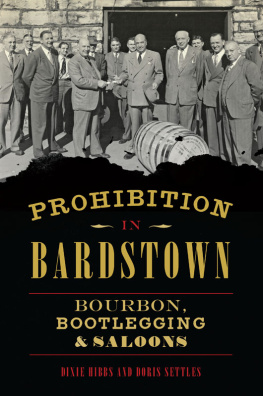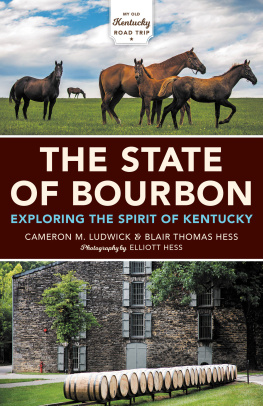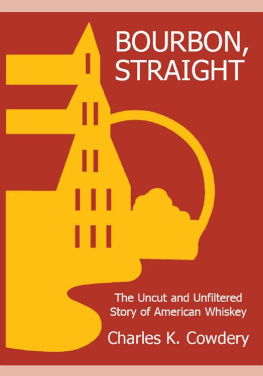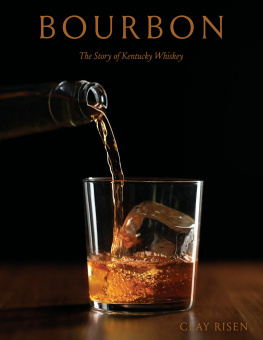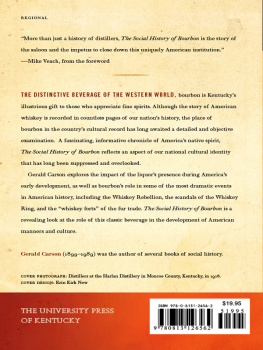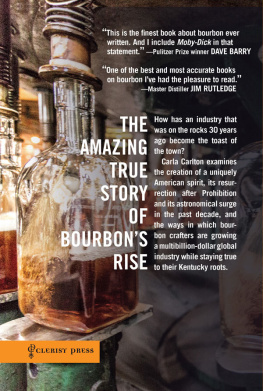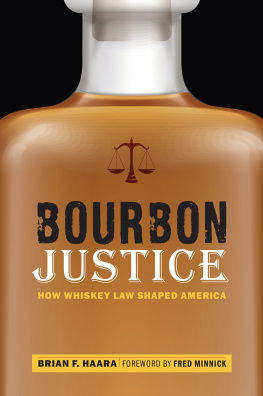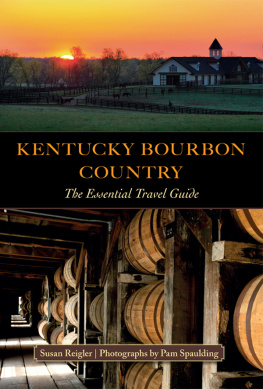
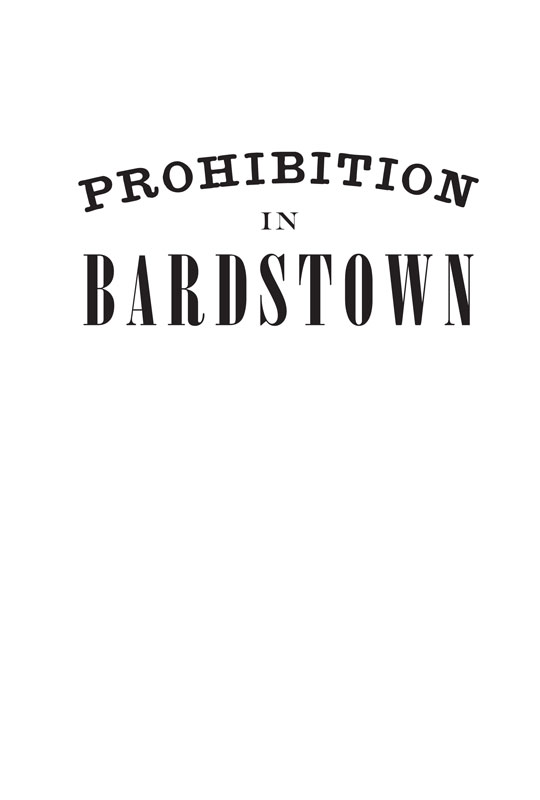

Published by American Palate
A Division of The History Press
Charleston, SC
www.historypress.net
Copyright 2016 by Dixie Hibbs and Doris Settles
All rights reserved
First published 2016
e-book edition 2016
ISBN 978.1.43965.623.5
Library of Congress Control Number: 2015960008
print edition ISBN 978.1.46713.560.3
Notice: The information in this book is true and complete to the best of our knowledge. It is offered without guarantee on the part of the author or The History Press. The author and The History Press disclaim all liability in connection with the use of this book.
All rights reserved. No part of this book may be reproduced or transmitted in any form whatsoever without prior written permission from the publisher except in the case of brief quotations embodied in critical articles and reviews.
Dixie Hibbs dedicates this book to all who have shared their research and knowledge with her to tell the BardstownNelson County story.
Doris Settles dedicates her work on this book to W.H. and Jenelle Dearen, her parents, and Doc and Clara Wells Oakley, her grandparents, who helped make Bardstown a beautiful place to live and passed on the character traits of pride in ancestry, language and a lifestyle of moderation.
CONTENTS
PREFACE
On a warm summer evening in Bardstown, sitting on the front porch is a long-term custom. The humidity can be stifling, but not nearly so much as the smell of sour mash wafting through town from the distilleries that surround it. But no one minded what could be an overwhelming scent; rather, Bardstown residents saw it as the smell of prosperity. We both recall generations seated side by side, hands busy shelling peas, cutting peaches or reading the newspaper. Our fathers and grandfathers generally held cigars and glasses of bourbon. Women and children might sip lemonade and use advertising or church Bible verse placard fans to move the air along the porch.
Those out for a walk might stop by to chat. Neighbors would come over to provide illumination on some event in the news or find out details from other porches. Stories were told and retold, and gossip was rampant.
It was in these circumstances that much of this book was born. Pleasant memories of summer breezes pushing the sour mash aroma across town are very much cemented in our minds.
As a town steeped in history, much of the local talk revolved around preservation, revisiting the past and the way things were. In the South, the adage children are to be seen and not heard was a tenet of our youth, but that didnt stop our youthful ears from gathering and synthesizing what was overheard. Often, questions might be asked of us, allowing us to delve more deeply into an adult world.
And so, from these early beginnings, and from our childhoods steeped in tradition and history, came the desire to document, investigate, research and provide those same opportunities to whomever is interested.
We hope you enjoy our efforts.
ACKNOWLEDGEMENTS
We would both like to thank Ellen Smith at the Nelson County Public Library for her assistance in locating and organizing information provided by myriad people and organizations. The people of Bardstown and surrounding areas are proud of their heritage and love to regale visitors with tales of the past. It is from this penchant that writers such as ourselves can collect and document stories for future generations.
INTRODUCTION
I live in a section of Kentucky where we have an abundance of Pretty Women, Fast Horses and Good Whiskey.
Fielding Merrifield
Representative to the Kentucky General Assembly from Bardstown in the 1840s, Fielding Merrifield had just submitted his first bill and taken his seat when a prominent Whig leader from the mountains inquired who the gentleman was who had offered the bill. Quick as a flash, the Bardstonian was on his feet and, looking toward his colleagues, said:
Mr. Speaker, it is with pleasure that I arise to enlighten the gentleman from the mountain tops where the invigorating atmosphere lends strength to all so fortunate as to hale from that section of our Commonwealth, where the huckleberry and the wild grape vine are a distinct part of natures production and where delightful breezes fan the brow of the weary traveler. But Mr. speaker, I live in a section of Kentucky where we have an abundance of Pretty Women, Fast Horses and Good Whiskey, where on every side can be observed waving bluegrass and growing crops, and there are no weeds or briars with which to contend and, Mr. Speaker, for the enlightenment of the gentleman from the hill-tops, I subscribe myself as his truly, Fielding Merrifield.
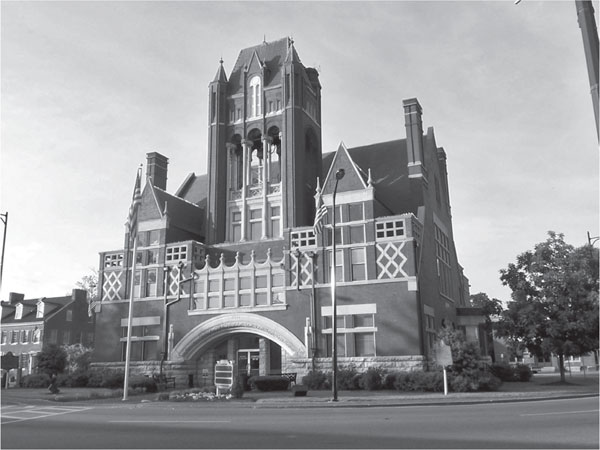
This building replaced a Georgian-style stone courthouse in 1892 and is still in use. The design was the result of an architectural contest, and this Richardsonian-Romanesque creation came out on top. Photo courtesy of Dixie Hibbs collection.
It would be virtually impossible to write any sort of history of Bardstown without writing about distilling. From its very beginnings in 1776, when Daniel Boones near relative Wattie Boone and his friend Stephen Ritchie first began manufacturing whiskey for sale near Pottingers Creek, to todays internationally known labels like Jim Beam, Heaven Hill and Makers Mark, distillingboth legal and illegalhas been an ongoing and highly profitable business in this area for over 250 years, and that includes during the Prohibition years.
In fact, Thomas Lincoln, who then lived at Hodgenville, some ten miles from Boones Distillery, was in tight circumstances and applied in 1814 for work at John Boones distillery. Boone gave him a job and found him to be a conscientious and quick employee. Lincoln and his family moved into a house about one mile from the distillery, but this was still too far to go home for lunch. Abraham carried his fathers meals to him. The year before the Lincolns moved to Indiana, Abraham had begun assisting his father in the distillery, and as Wattie said, that boy is bound to make a great man, no matter what trade he follows. And if he goes into the whiskey business, hell be the best distiller in the land. Of course, where Lincoln located in Indiana there were no distilleries, so he was compelled to learn a new businessand so it goes.
Named for Virginia governor Thomas Nelson, the geography of Nelson County has changed dramatically over the centuries. From December 31, 1776, to November 1, 1780, the area known now as the state of Kentucky was called Kentucke County, Virginia. On June 30, 1780, a law creating the three initial Kentucky counties of Jefferson, Fayette and Lincoln was signed by Virginia governor Thomas Jefferson. Nearly two-thirds of Jefferson County424 square miles of itwas soon to be renamed. On November 27, 1784, Virginia governor Patrick Henry signed the law creating Nelson County out of what had been Jefferson, effective January 1, 1785. On June 1, 1792, Kentucky became the fifteenth state admitted to the United States of America, with a total of nine counties, all of which still exist. Over the years, these initial counties were divided and subdivided, increasing the number of counties but not the size of the state.
Next page
